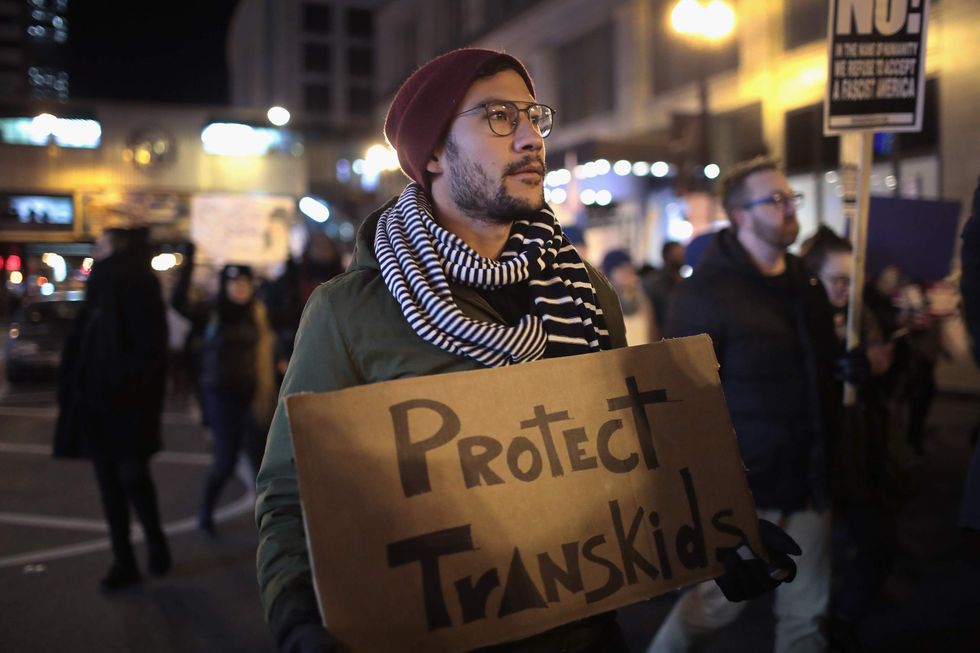
The Endocrine Society released updated guidelines Wednesday allowing for gender transition hormone treatments to be given to children younger than 16 years old. (Scott Olson/Getty Images)

Children who haven't even hit puberty yet can now receive gender-altering hormone treatments because some doctors say it will help them "blend in" more easily as they transition away from their birth gender, under recently updated medical guidelines.
The Endocrine Society says there "may be compelling reasons to initiate sex hormone treatment prior to age 16 years," even while the group acknowledges that the treatments are not recommended for children who have not gone through puberty. Previously, 16 was the minimum age for receiving these treatments.
The group also now believes there are psychological benefits for children to begin "social transitions," meaning they wear clothes and hairstyles that correspond with the gender they believe themselves to be, rather than their birth gender.
“It makes it a lot easier for that person to blend in,” said Dr. Steve Rosenthal, an endocrinologist in San Francisco and a member of the Endocrine Society. “If you go through female puberty and you have breasts, if you go through male puberty and you have an Adam's apple and a facial male structure, a deepened voice, all of these things are very difficult to change.”
To summarize, Rosenthal is advocating that a child who is believed to be transgender should begin changing his or her body through hormone treatment before the body develops too far into its biological gender, because it's easier that way.
Children who are pushed to "socially transition" or to receive hormone treatments early on are being asked to make a lifelong decision that they possibly cannot fully understand, and the long-term consequences of which are still unclear even to medical professionals.
"If the children are pushed in this belief, it will be much, much harder for them to get out of this belief because everyone will have agreed on it very, very early on," said Dr. Eric Vilain, chief of Medical Genetics at UCLA in an interview with KNTV-TV. "What worries me is that, indeed, there might be in the upcoming years a considerable number of these children that are placed on a path that we don’t fully know the outcome."
An estimated 1.4 million adults and 150,000 teens in the U.S. identify as transgender. But population figures for younger children are largely unknown.